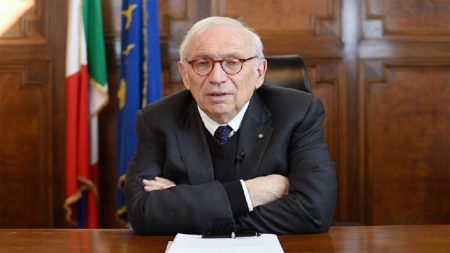Bianchi: "It is one of the most important reforms of the PNRR for Education"
With the approval in third reading by the Chamber of Deputies, the organic reform of the Higher Technical Institutes (ITS) becomes law. It is one of the qualifying points of the National Recovery and Resilience Plan (PNRR) for Education, a strategic action to make professionalising tertiary training more attractive for young people and to enrich the offer also in response to the needs of the fabric. productive territories and new perspectives of the world of work and the economy.
The ITS system, eleven years after its launch, represents, in fact, an effective sector in terms of the quality of the training offer and employability: according to the data of the national monitoring 2022, out of 5.280 graduates, 80% (4.218) found employment in the year 2021, despite the restrictions and difficulties caused by the pandemic.
“The process of one of the most important reforms of our PNRR ends today - declares the Minister of Education, Patrizio Bianchi -. The law defines a structured and national framework that strengthens the network of our ITS, guaranteeing the direct relationship with the territories and their productive tissues which represents their strength. The reform as a whole makes it possible to expand the educational offer for female students, with the aim of doubling the number of students. The reform is a step forward for the education system and for our industrial development. I thank all those who have collaborated in this reform very much ”.
The board
The ITS acquire the name of Higher Technological Institutes (ITS Academy) and become an integral part of the tertiary system of Higher Technological Education.
The new ITS are entrusted with the task of strengthening and expanding the professional training of senior technicians with high technological and technical-professional skills, to systematically support measures for the economic development and competitiveness of the country's production system. These institutions will also have the task of supporting the dissemination of scientific and technological culture.
Who can register
Young people and adults in possession of an upper secondary school diploma or a four-year diploma of vocational education and training can enroll in these courses, together with a certificate of specialization in higher technical education and training courses of at least 800 hours.
How the training offer will change
Each ITS Academy will refer to one of the specific technological areas that will be defined by decree. The educational offer will be aimed at training high skills in strategic sectors for the development of the country, in line with the job offer of the respective territories. Digital security, ecological transition, infrastructures for sustainable mobility are some of the areas that need to be strengthened.
The training courses will be divided into two levels, according to the European Qualification Framework (EQF): those of the fifth EQF level, lasting two years, and those of the sixth EQF level, lasting three years. They will be divided into semesters including hours of theoretical, practical and laboratory activities.
The training activity will be carried out for at least 60% of the total hours by teachers from the world of work. Company internships and training internships, mandatory for at least 35% of the total hours, can also be carried out abroad and will be adequately supported by scholarships.
A new governance
To create a new ITS in a province, you need: at least one upper secondary school in the same province, with a relevant educational offer; a training structure accredited by the Region, also located in a province other than that of the foundation's headquarters; one or more companies related to the use of technologies that the ITS Academy will deal with; a university or an institution of higher artistic, musical and dance training (AFAM) or a scientific hospitalization and treatment institute or a research body. AFAM institutions are equated to universities and the presence of local authorities will no longer be mandatory.
The minimum requirements and standards for the accreditation of the new realities will be defined by decree of the Minister.
Resources
The tertiary system of Higher Technological Education is financed with a specific Fund at the Ministry of Education whose endowment is 48.355.436 euros per year starting from 2022.
Orientation
The reform also defines measures to make these training realities known to young people and families and to promote exchanges of good practices between ITS Academy. Information campaigns and orientation activities are planned starting from lower secondary school, also with the aim of promoting gender balance in enrolling in these courses. In addition, "sectoral and territorial coordination networks" are set up to share workshops and encourage twinning between foundations of different Regions.
